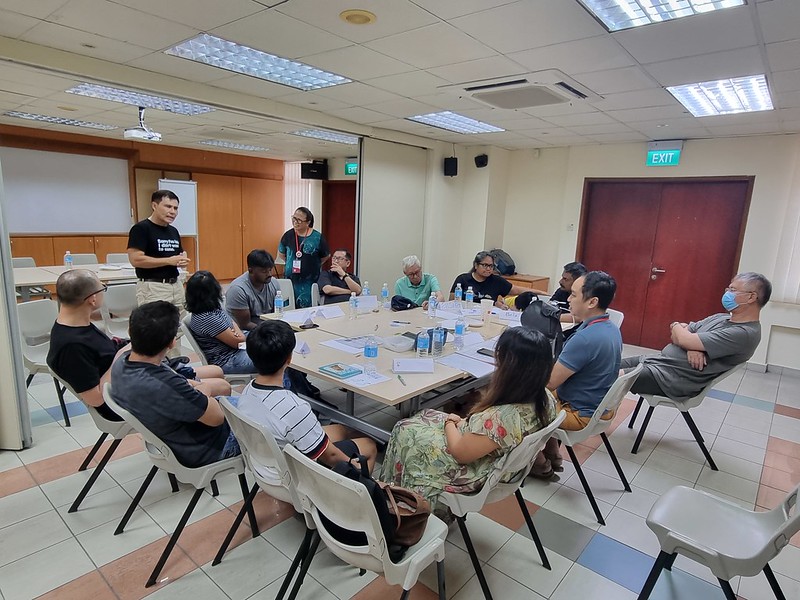
On 30 April 2023, as part of Humanist Cafe 2023, we brought together non-religious parents for a peer support session held at OnePeople.SG. Over two hours, participants delved into a range of topics, addressing the challenges and strategies related to raising children in a non-religious family.
The session began with one parent saying that explaining atheism to kids is tricky as young children might not understand what is “none” and “absence of faith.” A commonly suggested approach is to commence with a solid foundation in science education before moving onto more abstract concepts.
Another parent differed with this view, believing that children are more receptive than we might think, even as their openness evolves with age. In fact, one of the earliest signs that children are starting to think of the supernatural is a fear of ghosts. They also began asking life questions, around the age of 4-5. Parents’ words and teachings become pivotal during this developmental phase.
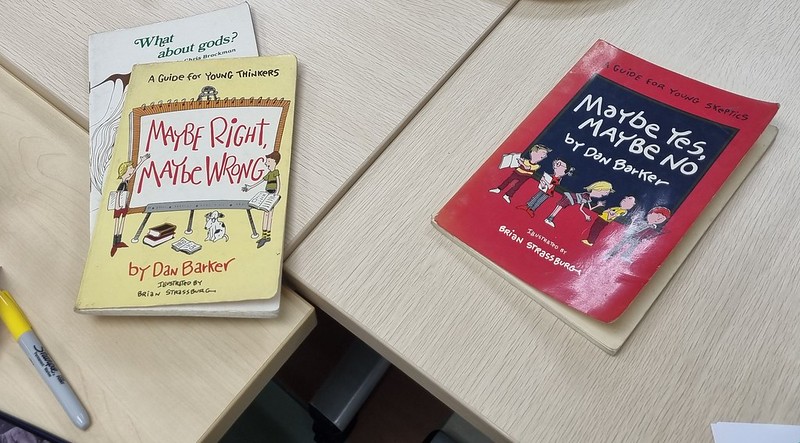
At this point, various participants suggested these approaches in teaching about religion, non-religiosity, and morality in general.
- Lead by example and rote learning. “Why I do this, and why you should do it”
- When faced with difficult questions, answer a question with a question. “What do you think?”
- At this age, children learn about superheroes and superpower. A parent can say: “Bad things happen, but humans can change things for the better. That is our superpower.”
- If the child is able to understand the concept of evidence, parents can highlight the absence of gods when bad things happen. Eg. During war, the many deaths are not stopped by any gods.
For one parent who has lost her faith, one of her children asked her what happened. She replied: “I don’t need a book to tell me I’m a good person. I do good, for goodness sake”
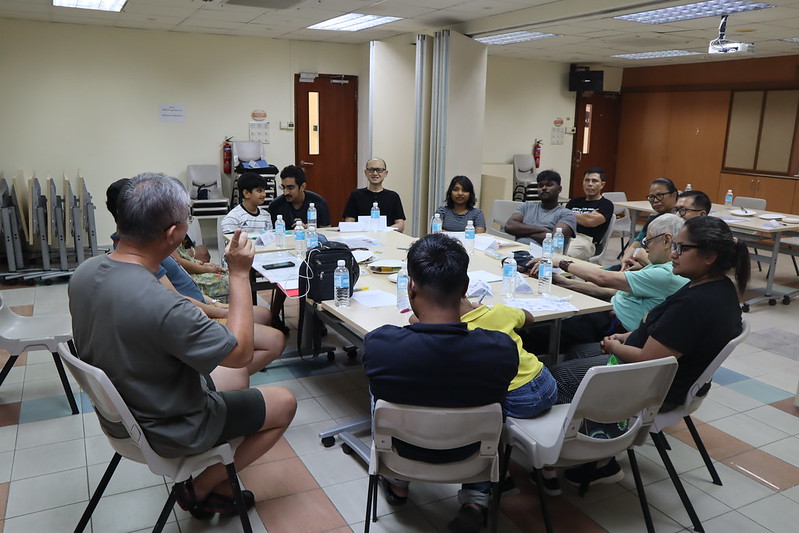
Facilitators also asked participating parents, would they introduce religion to their children?
Most participating non-religious parents are okay with their children learning about religions in general, and not indoctrination with a particular religion. They feel that religion should be presented as a spectrum, with many shades and colors. Parents should also be physically around when children are exposed to such beliefs, so as to guide them in case some beliefs are not nice and even violent.
Facilitators asked participants, if they were to introduce religion to children, at what age would they do that? The majority opted for ages 4-5, and can take the form of bringing them to religious services and festivals for exposure.
| Growing up as a freethinker A Cafe session held on 29 May 2022 discussed how it was like growing up as a freethinker. Participants discussed where they got their moral values as a child. They pointed to three sources: 1) Parents are the main authority and source of moral guidance. They would set expectations and rules for the child, and children are usually able to get considerable guidance. 2) The golden rule is often involved. Parents would tell their child, what would it be like if the other party did to you, what you did to them? Teaching the golden rule can be quite effective. 3) Exposure to different ideas was commonly experienced. Parents would teach the children how to think, instead of just what to think. |
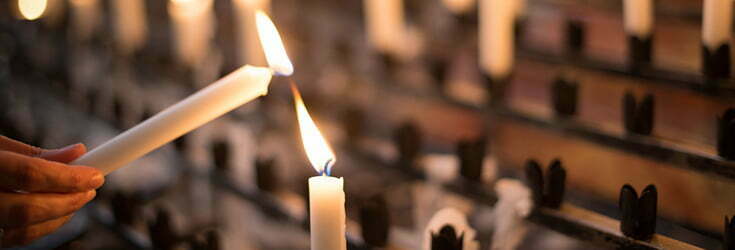
Nonetheless, parents cannot always be physically around their children. One parent raised concerns about religious influences in various educational settings. One parent adopted a very cautious view and said that children should be exposed as little as possible to religion, because religious apologists will cherrypick the nice teachings and influence children very quickly. Another parent is in two minds about letting children access religious places and teachings. He is pessimistic that he can compete against organized religion when it comes to influencing people.
Thus, another recurring theme throughout the discussion was the delicate balance between educating children about religion and allowing them to explore independently. Overall, there was:
- Acknowledgement of the inevitability of children exposure to various religions
- Agreement on the importance of providing guidance to children while avoiding imposing views
- Agreement on the need to fostering an environment where children can encounter different beliefs and draw their conclusions.
| Dilemmas One of the hardest things to teach are dilemmas. Children expect parents to have clear answers for everything, but this is not always possible. Read this article about how one humanist taught his chidren about dilemmas. |
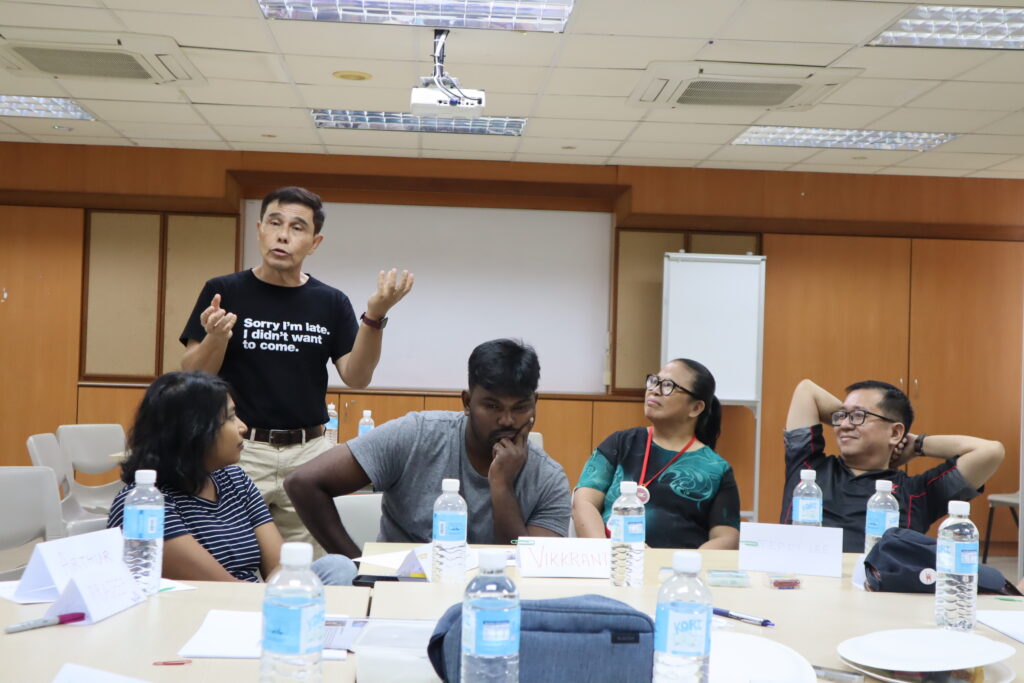
Towards the Cafe, several parents brought up these important points
- Teaching children is a marathon, not a sprint
- Parents should remain open to their children’s perspectives, and apologise if they are wrong
- Nurturing understanding and tolerance should be a priority. Many non-religious parents do not want their children to grow up imposing their non-religious beliefs on others.
- Remain calm and cool, even if their children has converted to a different belief
- Addressing children’s fears and uncertainties
Towards the end of the Cafe, one parent shared this story:
| My classmate said I’m going to hell! My son came home one day, feeling upset, because his classmate told him he’s going to hell as a non-believer. I asked my child: “Do you believe in hell?” My child replied: “No.” I replied: “Why do you worry then?” My child thought about it for a while, then replied: “Does it mean my classmate is stupid then?” I replied: “No, it just means people have different beliefs” |
About Humanist Cafe
Humanist Cafe is a monthly gathering aimed at providing peer support for the non-religious at multiple stages of life. Guided by facilitators, participants can share their life experience along one of six themes (as of 2023) marking life’s milestones. At the Cafe, you are able to give and draw support from fellow participants in the process.
This is the first Humanist Cafe session dedicated to non-religious parenting. We thank all those participated, including the facilitators. If you are interested to help organise more of such Cafes, contact us info[at]humanist.org.sg




